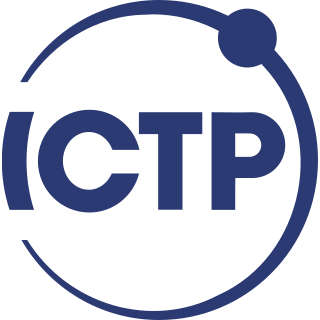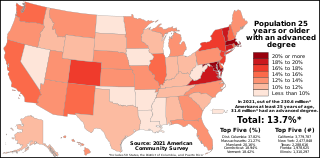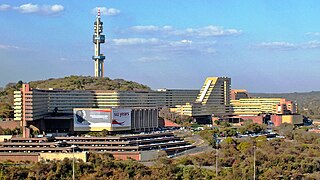
Education is a purposeful activity directed at achieving certain aims, such as transmitting knowledge or fostering skills and character traits. These aims may include the development of understanding, rationality, kindness, and honesty. Various researchers emphasize the role of critical thinking in order to distinguish education from indoctrination. Some theorists require that education results in an improvement of the student while others prefer a value-neutral definition of the term. In a slightly different sense, education may also refer, not to the process, but to the product of this process: the mental states and dispositions possessed by educated people. Education originated as the transmission of cultural heritage from one generation to the next. Today, educational goals increasingly encompass new ideas such as the liberation of learners, skills needed for modern society, empathy, and complex vocational skills.

Educational psychology is the branch of psychology concerned with the scientific study of human learning. The study of learning processes, from both cognitive and behavioral perspectives, allows researchers to understand individual differences in intelligence, cognitive development, affect, motivation, self-regulation, and self-concept, as well as their role in learning. The field of educational psychology relies heavily on quantitative methods, including testing and measurement, to enhance educational activities related to instructional design, classroom management, and assessment, which serve to facilitate learning processes in various educational settings across the lifespan.
The Fulbright Program, including the Fulbright–Hays Program, is one of several United States Cultural Exchange Programs with the goal of improving intercultural relations, cultural diplomacy, and intercultural competence between the people of the United States and other countries, through the exchange of persons, knowledge, and skills. Via the program, competitively-selected American citizens including students, scholars, teachers, professionals, scientists, and artists may receive scholarships or grants to study, conduct research, teach, or exercise their talents abroad; and citizens of other countries may qualify to do the same in the United States. The program was founded by United States Senator J. William Fulbright in 1946 and is considered to be one of the most widely recognized and prestigious scholarships in the world. The program provides approximately 8,000 grants annually—roughly 1,600 to U.S. students, 1,200 to U.S. scholars, 4,000 to foreign students, 900 to foreign visiting scholars, and several hundred to teachers and professionals.

Open educational resources (OER) are teaching, learning, and research materials intentionally created and licensed to be free for the end user to own, share, and in most cases, modify. The term "OER" describes publicly accessible materials and resources for any user to use, re-mix, improve, and redistribute under some licenses. These are designed to reduce accessibility barriers by implementing best practices in teaching and to be adapted for local unique contexts.

The Carnegie Corporation of New York is a philanthropic fund established by Andrew Carnegie in 1911 to support education programs across the United States, and later the world.
The history of education in Africa can be roughly divided into pre- and post- colonial periods. Since the introduction of formal education to Africa by European colonists, African education, particularly in West and Central Africa, is characterised by both traditional African teachings and European-style schooling systems. The state of education reflects not only the effects of colonialism, but instability resulting from and exacerbated by armed conflicts in many regions of Africa as well as fallout from humanitarian crises such as famine, lack of drinking water, and outbreaks of diseases such as malaria and Ebola, among others. Although the quality of education and the quantity of well-equipped schools and teachers has steadily increased since the onset of the colonial period, there are still evident numerous inequalities in the existing educational systems based on region, economic status, and gender.

Aga Khan University is a non-profit institution and an agency of the Aga Khan Development Network. It was Founded in 1983 as Pakistan's first private university. Starting in 2000, the university expanded to Kenya, Tanzania, Uganda, the United Kingdom and Afghanistan.

The University of Nairobi is a collegiate research university based in Nairobi. It is the largest university in Kenya. Although its history as an educational institution dates back to 1956, it did not become an independent university until 1970. During that year, the University of East Africa was split into three independent universities: the Makerere University in Uganda, the University of Dar es Salaam in Tanzania, and the University of Nairobi in Kenya.

Strathmore University is a chartered university based in Nairobi, Kenya.

The Abdus Salam International Centre for Theoretical Physics (ICTP) is an international research institute for physical and mathematical sciences that operates under a tripartite agreement between the Italian Government, United Nations Educational, Scientific and Cultural Organization (UNESCO), and International Atomic Energy Agency (IAEA). It is located near the Miramare Park, about 10 kilometres from the city of Trieste, Italy. The centre was founded in 1964 by Pakistani Nobel Laureate Abdus Salam.

The educational attainment of the U.S. population refers to the highest level of education completed. The educational attainment of the U.S. population is similar to that of many other industrialized countries with the vast majority of the population having completed secondary education and a rising number of college graduates that outnumber high school dropouts. As a whole, the population of the United States is spending more years in formal educational programs. As with income, levels differ by race, age, household configuration, and geography.
The African-American middle class consists of African-Americans who have middle-class status within the American class structure. It is a societal level within the African-American community that primarily began to develop in the early 1960s, when the ongoing Civil Rights Movement led to the outlawing of de jure racial segregation. The African American middle class exists throughout the United States, particularly in the Northeast and in the South, with the largest contiguous majority black middle class neighborhoods being in the Washington, DC suburbs in Maryland. The African American middle class is also prevalent in the Atlanta, Charlotte, Houston, Dallas, New York, San Antonio and Chicago areas.
Oppositional culture, also known as the "blocked opportunities framework" or the "caste theory of education", is a term most commonly used in studying the sociology of education to explain racial disparities in educational achievement, particularly between white and black Americans. However, the term refers to any subculture's rejection of conformity to prevailing norms and values, not just nonconformity within the educational system. Thus many criminal gangs and religious cults could also be considered oppositional cultures.

The University of South Africa (UNISA), known colloquially as Unisa, is the largest university system in South Africa by enrollment. It attracts a third of all higher education students in South Africa. Through various colleges and affiliates, UNISA has over 400,000 students, including international students from 130 countries worldwide, making it one of the world's mega universities and the only such university in Africa.

Education in Mali is considered a fundamental right of Malians. For most of Mali's history, the government split primary education into two cycles which allowed Malian students to take examinations to gain admission to secondary, tertiary, or higher education. Mali has recently seen large increases in school enrollment due to educational reforms.
Educational inequality is the unequal distribution of academic resources, including but not limited to school funding, qualified and experienced teachers, books, and technologies, to socially excluded communities. These communities tend to be historically disadvantaged and oppressed. Individuals belonging to these marginalized groups are often denied access to schools with adequate resources. Inequality leads to major differences in the educational success or efficiency of these individuals and ultimately suppresses social and economic mobility. Inequality in education is broken down in different types: regional inequality, inequality by sex, inequality by social stratification, inequality by parental income, inequality by parent occupation, and many more.

The Tertiary Education and Research Network of South Africa (TENET) is the de facto national research and education network in South Africa.
Japari School is an independent pre-preparatory and preparatory primary school located in Johannesburg, South Africa. It aims to serve learners from Grade 1 to Grade 7 who experience difficulty learning in mainstream channels.
The South African Association for Marine Biological Research (SAAMBR), is a non-government, non profit company and public benefit organisation which contributes to the conservation of marine and coastal resources in the Western Indian Ocean, founded in 1951.











